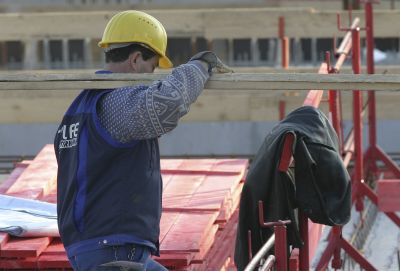The European Labour Authority (ELA) needs more powers and resources to properly tackle the exploitation of cross-border workers, the ETUC will tell policymakers today.
Non-payment of wages, social security fraud, health and safety breaches and poor-quality accommodation are among the most common rights violations faced by some of Europe’s 10 million mobile workers.
ELA has now carried out more than 100 inspections since it was established in 2019, which have uncovered the exploitation of building workers, lorry drivers, horeca and factory workers. A high rate of violations were often identified in the course of ELA’s inspections, involving both EU and third-country nationals as victims.
But, speaking at conference on ELA’s role organised by the Belgian presidency of the EU, ETUC Deputy General Secretary Isabelle Schömann will say it is clear the authority needs more powers to deliver on its important mission.
More inspections, stronger enforcement
The ETUC is making the call ahead of a Commission review of the ELA’s mandate, which has to take place by the end of the summer. The European Parliament also voted last week for a motion calling on the Commission to strengthen ELA.
While ELA only reached full operational capacity in 2023, it needs to trigger hundreds of inspections each year to make a real difference.
By comparison, the EUROJUST agency (which has only a slightly larger staff) handled more than 11,000 cases and established close to 300 cross-border investigations teams in 2022 alone.
The complexity of the cases that have been tackled by ELA, sometimes involving hundreds of workers from dozens of countries employed in long subcontracting chains, also show the need for it to have further investigatory powers to effectively tackle abuses involving labour intermediaries and letterbox companies.
The ETUC supports the Parliament and calls for the ELA mandate to be changed to ensure:
- It has powers to access and process data equivalent to those held by EUROJUST and the European Banking Authority, which would allow ELA to carry out investigations on its own initiative to identify and sanction fraudulent employers.
- The protection of labour rights of both EU mobile and third-country national migrant workers. Currently there are six EU agencies competent on migration from outside the EU, but since none of them are tasked with ensuring decent working conditions for migrant workers, this role should be given to ELA.
- Strengthened trade union involvement in the design and enforcement of ELA activities to ensure it responds to the needs of workers and makes a difference on the ground. ELA cannot be framed as an instance of last resort, but cross-border cases like those submitted by European trade unions in 2021 must be effectively investigated by ELA already from the start.
ETUC Deputy General Secretary Isabelle Schömann said:
“Mobile and migrant workers are among the most vulnerable and the least protected in Europe. Too often that vulnerability is exploited by employers across the economy to boost their profit margins through the under-payment of wages, non-respect of working time, social security fraud, or the provision of poor quality accommodation.
“Informing workers about their rights is important, but fair labour mobility importantly requires effective enforcement of applicable rules in cross-border situations. For this to happen, ELA’s mandate needs to change; cooperation with trade unions and national authorities needs to be improved.
“Inspections carried out by ELA have already uncovered hundreds of violations but the scale of the abuse facing 10 million workers requires its action to be massively scaled up.
“The European Commission must recognise the need to equip ELA with more powers and resources to fully be able to shine a light on the building sites, farms, factories and lorry parks where abuse is taking place and properly enforce the law.”
Notes
ETUC position on the review of the mandate of the European Labour Authority
European Parliament motion on the revision of the European Labour Authority mandate
Photo credit: European Parliament

